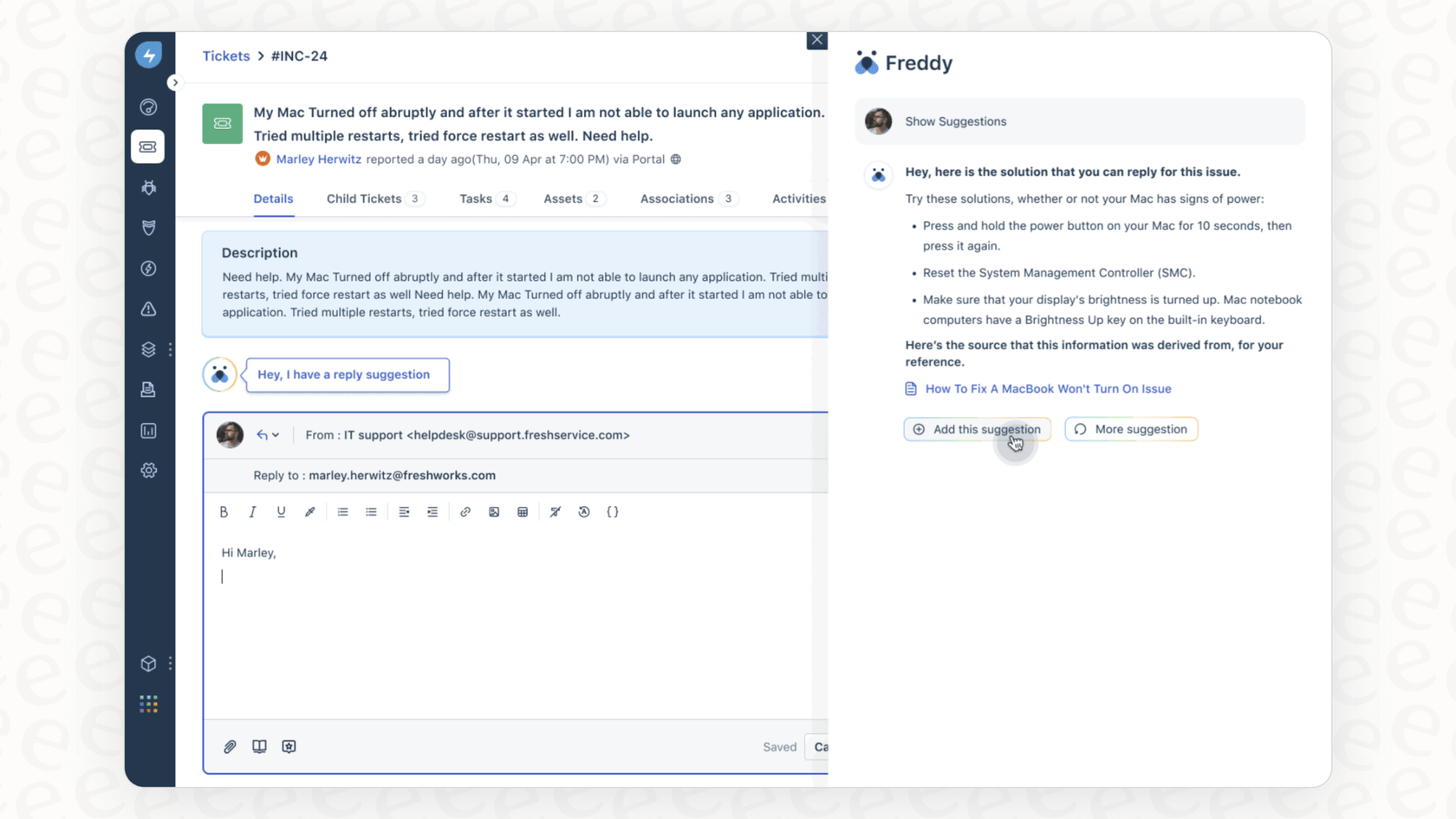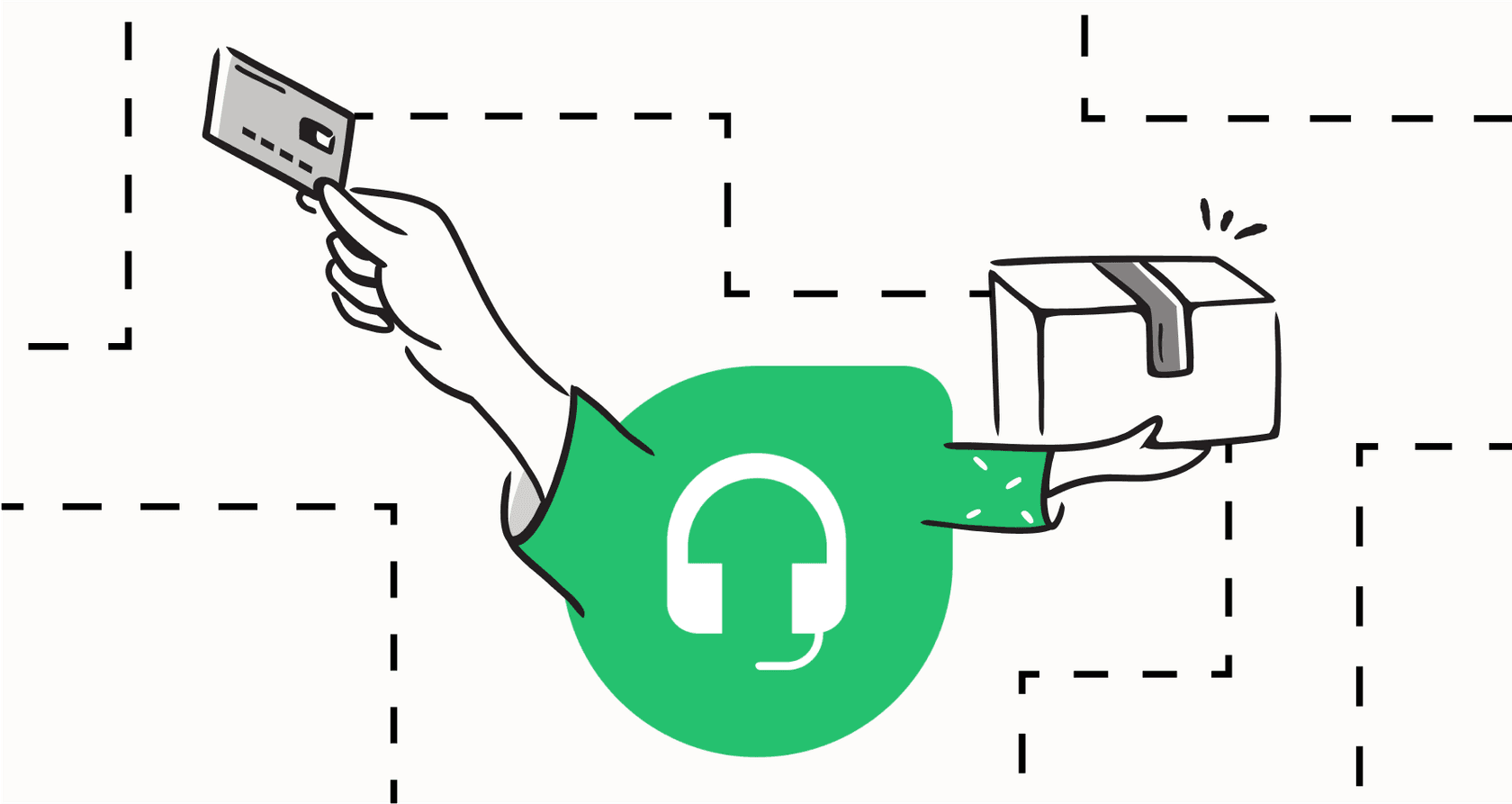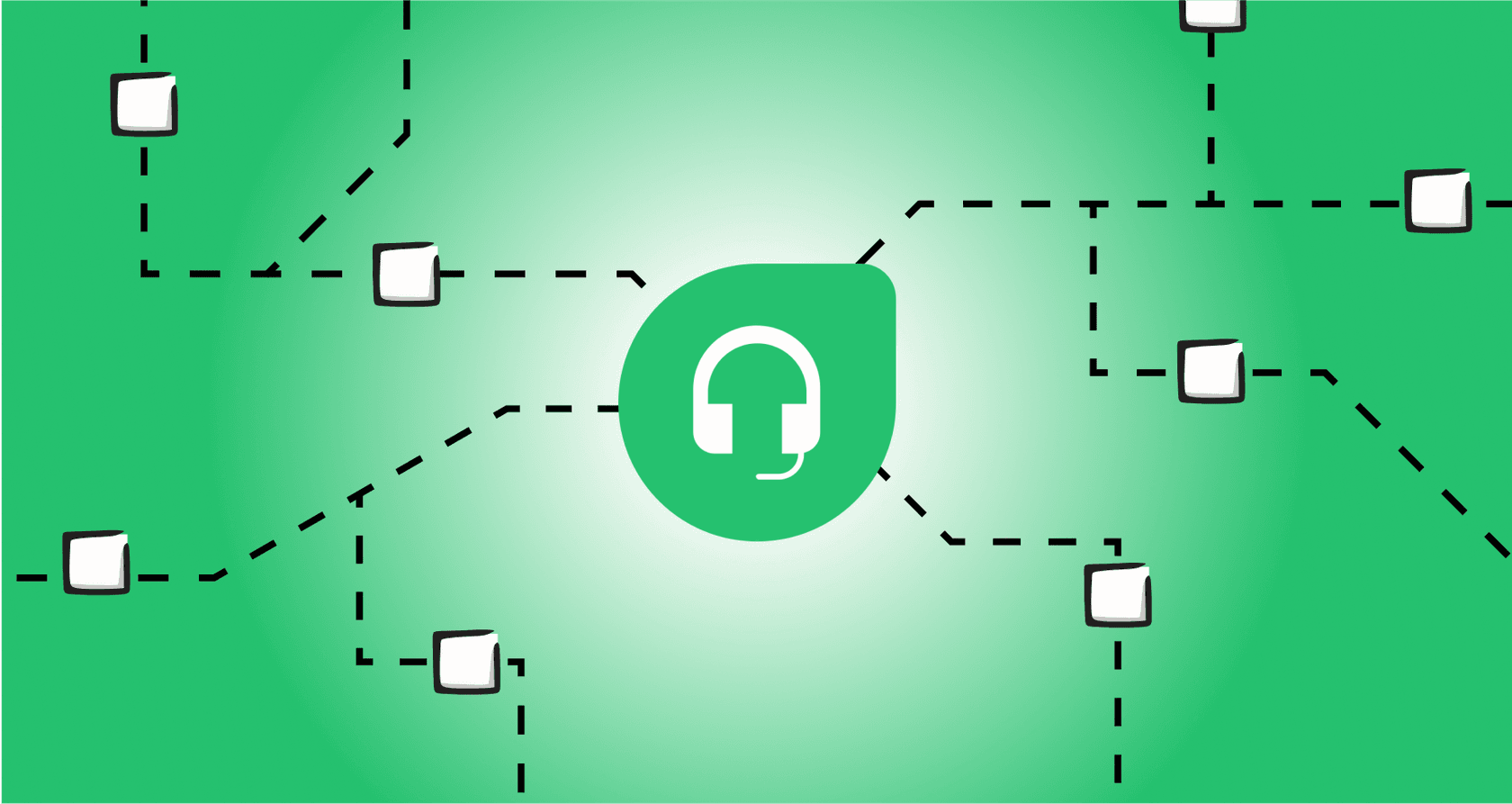Forethought vs Freshdesk: An honest comparison for 2026

Stevia Putri

Katelin Teen
Last edited January 16, 2026
Expert Verified

The customer support world is a bit divided right now. On one side, you have AI-native platforms promising to automate your entire support queue. On the other, you’ve got the familiar helpdesks you’ve used for years, which are now adding AI features on top of their existing systems. It’s the classic new-school vs. old-school debate.
This brings us to the heart of the matter: Forethought vs Freshdesk. Forethought is all-in on the AI-first approach, built from the ground up for autonomous agents to resolve customer issues. Freshdesk is the established, all-in-one helpdesk that’s layering AI into its already popular ticketing system.
So, which way should you go? This guide gives you a straight-up comparison of their AI chops, how easy they are to set up, and what they’ll cost you in 2026. We’ll also look at a third option: what if you could get powerful, custom AI without having to choose between a complicated new system and a limited add-on?
What is Forethought?

Forethought calls itself an "AI Agent Platform for Customer Support." Their entire philosophy revolves around what they call "[fully agentic] AI." Think of bots that don't just spit out canned answers but can actually reason, make decisions, and take action to solve problems on their own. It’s designed to be a powerful brain for enterprise support teams.
The platform is split into a few main products: Solve (their AI agent for all channels), Triage (for sorting and routing tickets), and Assist (a copilot for human agents). The whole system learns from your past tickets and knowledge bases to provide automated support. They use a "multi-agent system" where different AIs work together to handle a customer's journey, with the end goal of automating as much as possible.
What is Freshdesk?
If you've worked in support, you've probably heard of Freshdesk. It's a massive, cloud-based software that helps teams manage customer conversations from email, chat, phone, and social media. At its core, it’s a rock-solid ticketing system built to make support more organized and scalable for businesses of all sizes.

Its AI, called "Freddy AI," acts as a powerful partner for the main helpdesk. Freddy can deflect common questions by pointing customers to knowledge base articles, help categorize tickets automatically, and give agents suggested responses. Freshdesk is a trusted, industry-leading ticketing system, and Freddy AI is layered on top to enhance existing workflows. It’s part of a huge ecosystem of apps and is known for being very easy to get going. If you're looking to add reliable automation to your process, Freshdesk is a proven foundation with impressive AI capabilities. You can even hook it up with specialized AI tools through the eesel AI Freshdesk integration.
Core differences: Comparing Forethought and Freshdesk
Alright, now that we know who's who, let's get into the practical differences. We’ll look at how they compare in three key areas: their AI and automation, what it takes to get them running, and how much you can expect to pay.
AI and automation capabilities
Forethought's approach: Forethought goes all-in on autonomous AI that aims for full resolution without a human ever touching a ticket. This can be effective for handling high volumes of repetitive questions. However, because it operates autonomously, it can sometimes feel complex to manage, and fine-tuning it usually involves leaning on their professional services team. Its multi-product setup (Solve, Triage, Assist) means managing different components to build a complete system.
Freshdesk's approach: Freddy AI is designed to empower your agents. It's there to assist your team, making their work more efficient without losing the human touch. It suggests answers, helps with routing, and handles basic questions, keeping your human team as the central point of the support experience. Freshdesk offers a seamless AI experience built into a traditional helpdesk workflow, making it incredibly intuitive. Its automation relies on reliable, user-defined rules that ensure consistent and predictable support outcomes.
A more flexible alternative: This is where platforms like eesel AI strike a great balance. Instead of an all-or-nothing system, eesel AI offers a fully customizable workflow engine. You get to decide exactly which tickets the AI handles through selective automation. You could start by letting it handle all your "Where is my order?" tickets while your team takes care of everything else. Using a simple prompt editor, you can define the AI's personality, tone, and the exact actions it's allowed to take.
Unlike systems that require a complete migration, eesel AI plugs right into the tools you’re already using, like Freshdesk. It pulls knowledge from all your company's sources, not just help articles but also past tickets, Confluence pages, and Google Docs, to give answers with real context.

Implementation and integration
Forethought's process: Getting started with Forethought is a major project. It's a hands-on process that requires their professional services team to get you set up. You usually have to go through a full sales cycle with calls and demos. While it does integrate with major helpdesks, its primary goal is to act as the AI engine for your support team, which can be a significant addition to your existing workflows.
Freshdesk's process: Freshdesk is celebrated for being easy to set up. You can get a basic helpdesk running in an afternoon. Adding Freddy AI is also simple since it’s already part of the Freshworks ecosystem. It has a giant marketplace of apps to add more features, and it offers a wide range of intuitive AI configurations within its robust platform.
The self-serve advantage: Forethought’s heavy, enterprise-first approach is built for a specific scale. This is where a tool like eesel AI changes the game. It’s built to be self-serve. You can genuinely go live in minutes, not months. Just connect your helpdesk with a click and start building your AI agent immediately, no salesperson needed.
Even better, eesel AI has a powerful simulation mode. Before your AI ever talks to a customer, you can test it on thousands of your past tickets. The simulation shows you an accurate forecast of its resolution rate and exactly how it would have answered real customer questions. This takes the guesswork out of rolling out AI, allowing you to tweak behavior with confidence.

Pricing and total cost of ownership
Forethought's model: Forethought keeps its pricing under wraps. It’s entirely quote-based and designed for enterprise budgets. This often means custom contracts and a lack of public transparency, which can make budgeting for the final bill or setup fees a long process.
Freshdesk's model: Freshdesk offers clear, tiered pricing that provides great value for businesses as they scale. You know exactly what you're getting into. Its specialized AI features are conveniently available on its higher-tier plans, such as Pro and Enterprise, allowing businesses to access more advanced capabilities as they grow. This model is very predictable for planning.
A predictable alternative: Unpredictable pricing is a challenge for any team. eesel AI offers transparent and predictable plans based on the features and capacity you use. There are no per-resolution fees, which is a huge plus. You’ll never be surprised by a high bill after a busy month where the AI did its job well. This model connects cost to value, making your budget much easier to manage.

Detailed pricing breakdown
Clear pricing is a must for making a good decision, so let's get into what you can expect for these tools.
Forethought pricing: As mentioned, Forethought doesn't publish its prices. You have to book a demo and get a custom quote. This indicates it is tailored for large organizations with enterprise-level budgets and usually involves a custom sales process.

Freshdesk pricing: Freshdesk is very open about its costs. Here’s a quick look at the plans that include their Freddy AI features.
| Plan | Price (Billed Annually) | Key AI & Automation Features |
|---|---|---|
| Growth | $15/agent/month | Automation rules, Collision Detection |
| Pro | $49/agent/month | Freddy AI suggestions, Ticket field suggester, Canned forms |
| Enterprise | $79/agent/month | Freddy AI skill-based routing, Email bot, Auto-triage, Sandbox |
Making the right choice for your team
So, how do you choose between Forethought's all-out automation and Freshdesk's agent-assist model? Here’s a simple way to think about it:
-
Choose Forethought if: You're a large enterprise with a significant budget, ready for a complex, long-term implementation project focused on maximizing full automation.
-
Choose Freshdesk if: You want a reliable, easy-to-use platform where AI empowers your team with streamlined workflows and dependable automation. It is a fantastic choice for businesses of all sizes looking for a trusted, all-in-one helpdesk with a mature ecosystem.
But what if you want powerful, genuinely customizable AI that integrates effortlessly into your current setup?
A better way: Flexible AI that works with your helpdesk
You don't have to choose between a specialized AI platform and a standard helpdesk setup. eesel AI gives you the best of both worlds.
You get powerful, customizable AI that you can set up yourself in minutes and test risk-free with a built-in simulation mode. And you pay a simple, predictable price that makes your budget easy to manage.
Instead of debating whether to change your entire infrastructure, you can start making it better today. Try eesel AI for free.
Frequently asked questions
Forethought focuses on "fully agentic" AI for autonomous resolution, aiming to automate as much as possible without human intervention. Freshdesk's Freddy AI is a powerful assistant, layered on top of its mature helpdesk platform to empower human agents and streamline their workflows.
Getting Forethought set up is a major project that typically requires their professional services team. Freshdesk is celebrated for being easy to set up, with a basic helpdesk potentially running in an afternoon, making it a highly accessible choice.
Forethought's pricing is not publicly disclosed and is entirely quote-based, designed for enterprise budgets. Freshdesk offers clear, tiered pricing published publicly, making costs predictable and offering specialized AI features across its growth-oriented plans.
Forethought is geared towards large enterprises with substantial budgets and complex automation goals. Freshdesk is an excellent fit for businesses of all sizes, especially small to mid-sized teams that need a reliable, easy-to-use helpdesk with robust AI assistance.
Forethought aims for full, end-to-end automation. Freshdesk's AI provides efficient automation that assists agents by handling repetitive tasks, categorizing tickets, and suggesting accurate answers, ensuring the human touch remains central to the support experience.
Forethought aims to become a new AI brain, which may require significant workflow changes. Freshdesk's AI is built directly into its established ecosystem, making additions simple, and it offers a massive marketplace for thousands of app integrations.
Forethought's autonomous AI can sometimes feel complex to manage, often requiring reliance on their professional services team. Freshdesk's AI offers intuitive, rule-based automation that allows for consistent results that align perfectly with your defined support workflows.
Share this post

Article by
Stevia Putri
Stevia Putri is a marketing generalist at eesel AI, where she helps turn powerful AI tools into stories that resonate. She’s driven by curiosity, clarity, and the human side of technology.





